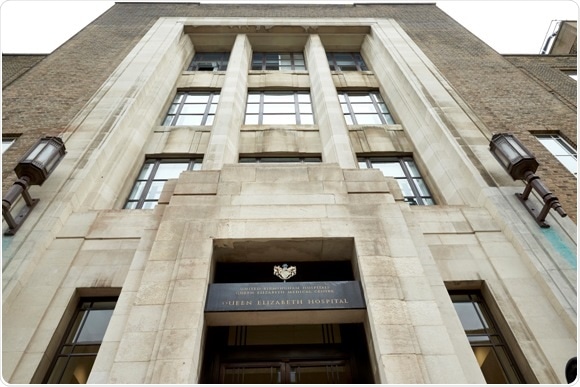Sep 15 2016
Thanks to an exciting collaboration between the Queen Elizabeth Hospital Birmingham (QEHB), medical charity Cobalt and Siemens Healthineers, the pioneering Institute of Translational Medicine (ITM) will benefit from an innovative Magnetic Resonance Imaging (MRI) research facility, to be known as the ‘ITM Imaging Centre’. Cobalt will invest £2m to develop this new facility which will house a state of the art Siemens Skyra 3.0 Tesla MRI scanner and a purpose designed building for the QEHB site.

Institute of Translational Medicine benefits from a new MRI research facility thanks to a collaboration between the Queen Elizabeth Hospital Birmingham, Cobalt and Siemens Healthineers
“This exciting new venture represents another significant milestone for Cobalt, working in close partnership with QEHB and Siemens Healthineers. This project will fulfil our objective to further increase research capacity, particularly in oncology and neurology, above and beyond the significant contribution we already make from our Imaging Centre in Cheltenham. We are very proud to be involved with the Institute of Translational Medicine” states Peter Sharpe, CEO, Cobalt
The MAGNETOM Skyra MRI system from Siemens Healthineers will allow research professionals at QEHB to use a range of different scanning positions and obtain the high image quality required for the studies taking place. Its innovative Tim® 4G and Dot® technology incorporates an ultra-high coil element density, which helps to deliver the quality images. The wide bore design also ensures that participants taking part in the research are comfortable and compliant, and image quality is not compromised.
Peter Harrison, Managing Director UK at Siemens Healthineers, commented:
As a city with varying clinical requirements, Birmingham is well placed to act as a hub for translational research that can bring real benefits for patients across the UK and Europe. Research into the fields of oncology and neurology is certainly high on the government agenda and the MAGNETOM Skyra MRI system will provide researchers with the excellent images they need to support vital and comprehensive research in these areas. We will be working closely with QEHB and Cobalt to ensure the Skyra MRI is utilised to its full potential, supporting its ambition to become a leading force for imaging research in Europe.
The ITM Imaging Centre is likely to be launched in January 2017. This service will enable a broad range of research for many specialties on the QEHB site; including oncology, neurology, cardiac and liver, utilising the very latest technology, including evaluating techniques not currently commercially available. This new service will be delivered by both Cobalt and QEHB staff.
Paul Brettle, Commissioning Lead for QEHB added:
We are delighted to host the partnership between Cobalt and Siemens Healthineers within the Institute of Translational Medicine. The centre aims to help progress the latest scientific research findings across a range of health issues, paving the way for new clinical treatments; whereas our clinicians will be given access to high-quality systems that will also benefit from time and cost savings. This world class facility will put medical imaging at the forefront of its research and will endeavour to pioneer medical research.